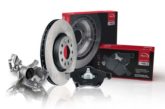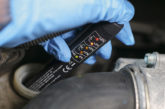Neil Pattemore explores how the SERMI scheme, devised as part of the Euro 5 legislation, could potentially lead to increased profitability for independent garages.
Readers of PMM will be aware that European legislation has been implemented to help independent operators access the technical information necessary to conduct repair and maintenance procedures. In particular, this legislation includes the original (and subsequently updated) Block Exemption Regulation (BER) and for later vehicles, the Euro 5 Regulation (new type approved models from 1st September 2009 and all new cars from 1st January 2011).
The Euro 5 legislation introduced many new requirements to ensure that information must be provided in a ‘non-discriminatory’ manner by the vehicle manufacturers when compared to what is available to their authorised repair network (i.e. main dealers).
This information must not only be made available through a ‘standardised’ vehicle manufacturer website, but the legislation also implemented further website requirements for such things as access to the electronic service records, whilst providing additional requirements to give access to anti-theft related information for those parts (hardware and software). This had previously been denied, or at least was very difficult to access for independent operators, and had only been available to authorised repairers.
“The SERMI scheme creates an assessment method that provides the ‘electronic key’ to the vehicle manufacturer’s website, which ensures that the appropriate security related information is then legitimately made available.”
This resulted in some workshop repairs being impossible to complete without taking the vehicle back to the main dealer, with the associated delays and costs. However, the Euro 5 legislation included establishing a ‘security forum’ to investigate how access to the anti-theft related information could be safely and securely provided to independent operators from all vehicle manufacturers.
After extensive discussions amongst the principle stakeholders (e.g. the vehicle manufacturers, aftermarket associations, police forces, insurance companies etc.), over several years, the security forum created a scheme that detailed how access to Security Related Repair and Maintenance Information (SERMI) could be provided. The SERMI scheme creates an assessment method that provides the ‘electronic key’ to the vehicle manufacturer’s website, which ensures that the appropriate security related information is then legitimately made available.
When will this scheme be available and how will it work in practice?
Even though this scheme was instigated as part of the Euro 5 legislation in 2007, it has taken all this time to get the details agreed, the final accreditation scheme ‘signed off’ by the European Accreditation authority, the European Trust Centre identified, and for the European vehicle type approval legislation to be drafted to provide the legal basis for its implementation and use. The process has not yet been completed and realistically it will take another two years before the Trust Centre and type approval legislation is in place.
The good news is that the process of applying, being assessed and gaining approval will start late this year or very early next year. There are several organisations across Europe that are ‘gearing up’ to provide the structure to conduct this approval process, including one of the leading organisations based in the UK.

What’s involved?
The SERMI scheme will involve the independent workshop and four other key stakeholders. The process starts with a National Accreditation Body (NAB) appointing one or more ‘Conformity Assessment Bodies’ (CABs) in each Member State. They are then responsible for conducting an in-depth assessment of both the independent company, including the person legally responsible for the company (i.e. the owner or Director) and any workshop technician(s) employed by the company and who want to be authorised for access to security related information.
Once it is clearly established that the independent company is directly and legitimately involved in the business of repairing vehicles and the various documents (including personal identity documentation and no relevant criminal record) have been accepted, then the company will be approved and its technician(s) authorised. The CAB will forward the company details and (to hide their personal identity) the encoded details of the technician(s) to the European Trust Centre, which subsequently issues an electronic certificate to the independent workshop and individual PINs to each of its authorised technician(s), which are then used to access security related information from any vehicle manufacturer.
When a vehicle ‘security’ repair is needed, the authorised technician now has the ability to connect the vehicle to the internet using a standardised vehicle communication interface (VCI) and a Windows-based PC, and, subsequently, to the appropriate VM’s website. When the security information is requested, the VM website will request the SERMI certificate and associated PIN and then check with the Trust Centre that they are both valid. If they are, then the connection is confirmed and the data or information is made available to the workshop.
If any malicious or dishonest activities are detected (e.g. the vehicle is subsequently stolen), then the VM can request that the certificate is revoked and the company and technician involved can be identified.
However, as all independent workshops are ‘upright and honest’, then the SERMI scheme can only be an advantage and provides the key to working on security systems more easily, which will allow repairs to be completely in the workshop, which means increasing profits! So at last, a way to unlock future business is not so far away!










